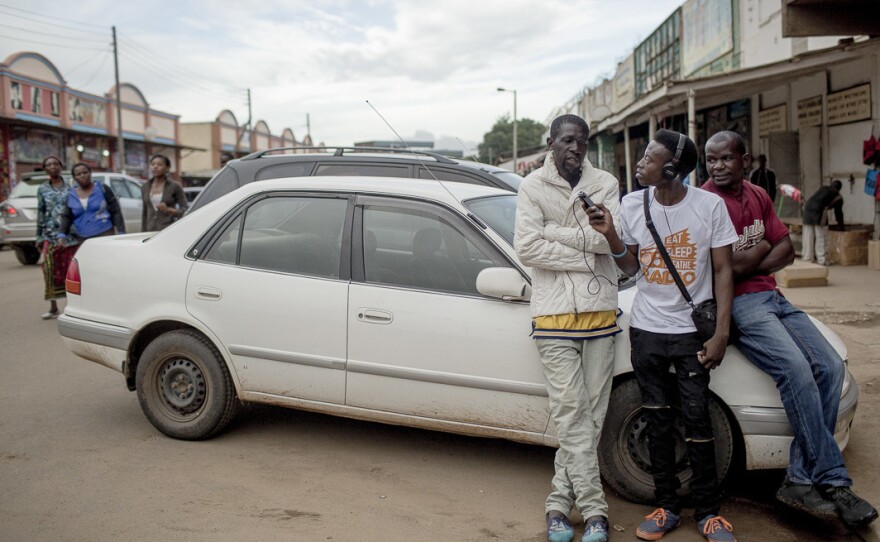

When Cleopas Kapembwa Chisanga in Zambia found out he was HIV positive, he wanted to kill himself.
"Because when you have HIV you have the monster inside you," Chisanga, 24, says in a new video series about the experience of young people grappling with HIV in Africa. "I thought of killing myself because I never wanted to have that monster in me."
Chisanga's story is part of a project by the Children's Radio Foundation, launched to coincide with Monday's opening of the 21st International AIDS Conference 2016 in Durban, South Africa.
Michal Rahfaldt, the head of the Children's Radio Foundation, says for teenagers today HIV is different than it was 20, 15 or even 10 years ago.
"We wanted to bring out some of the stories of our youth reporters who are infected with and affected by HIV in ways that really speak to some of the nuances of their experiences," Rahfaldt says.
For instance, in South Africa, where Rahfaldt is based, he hears young people saying HIV isn't really a big deal anymore.
"We've heard this several times where someone says, Oh, my aunt has a diabetes. I'm so glad I have HIV rather than diabetes, because it [diabetes] is so difficult to manage and with HIV I only have to take one pill."
But he adds that the situation varies dramatically across the continent. One of the videos follows a young woman trying to buy condoms in Zanzibar. Another tracks a young woman's more than three-hour round-trip walk to and from an HIV clinic.
Chisanga talks about the way he's shut out of jobs and shunned because he's HIV positive. Even going to get his anti-AIDS drugs can be humiliating.
"I wish I could go to the clinic where people don't laugh at me and point fingers at me," he says.
Chisanga and 15 other young reporters from the Congo, Tanzania and South Africa will be setting up a radio station at the International AIDS Conference to cover the event. Part of their goal is to make sure that at the world's biggest convention on HIV/AIDS the conversation isn't dominated by the older generations.
Copyright 2016 NPR. To see more, visit http://www.npr.org/.






